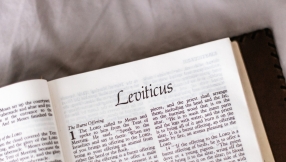We are told that the ‘Tales of Beedle the Bard’ have been translated from the original runes by Miss Hermione Granger and have now been published anew for both magical and muggle (non-magical) audiences alike.
The five tales – ‘The Wizard and the Hopping Pot’, ‘The Fountain of Fair Fortune’, ‘The Warlock’s Hairy Heart’, ‘Babbitty Rabbitty and the Cackling Stump’, and ‘The Tale of the Three Brothers’ – are as dear to the wizarding world as fairytales such as Cinderella and Sleeping Beauty are to ours.
The five tales have been met with great excitement as the last, ‘The Tale of the Three Brothers’, is of great significance in the seventh Harry Potter book, Harry Potter and the Deathly Hallows.
The tales are in many ways similar to our fairy stories, however a few noteworthy differences strike the reader. One of the most interesting of these is the role and stature of women in Rowling’s tales. The witches are arguably much more attractive to a modern reader as they seek their own fortunes.
‘Rather than taking a prolonged nap or waiting for someone to return a lost shoe,’ they take fate into their own hands. In her introduction Rowling also points out that, unlike muggle stories, magic can be both the cause and cure of the characters problems, whereas in our fairy stories, magic is almost always just the cause.
However, despite the presence of magic, it is made clear that the characters face the same problems as muggles, thus making their lessons relevant for both magical and muggle readers.
Each tale promotes a moral lesson. One which causes all Harry Potter readers ears to prick up is that of racial equality. A huge theme across the Harry Potter books is that of blood purity. Rowling continually damns the prejudices of some of her less-liked characters such as the Malfoys who promote ideas about racial purity as all-important.
Her heroes and heroines, both in the Harry Potter books and these tales, are those who challenge the prejudices, prove them to be evil and invalid, and thus promote morals which condemn racism in every form.
The theme which unlocks all five tales is seen most clearly in that of the Three Brothers. It is found in each story, but it is unpacked by Dumbledore in his commentary on ‘The Warlock’s Hairy Heart’. He states that the tale "addresses one of the greatest, and least acknowledged, temptations of magic: the quest for invulnerability".
The truth of this statement runs deeper than many of us care to think about, and is certainly true for the muggle as well as the magical reader. What would we give to be invulnerable?
In the next sentence, however, Dumbledore points out that "such a quest is nothing more or less than a foolish fantasy". But if this is true, why does it captivate Rowling’s characters - and us - at every step of life? Perhaps it is because it exposes what we fear most: loss.
Like the characters in the five tales, we want to be invulnerable because we each know what it is to experience loss. Taking a huge variety of forms, loss can be as mundane as the simple absence of peace and quiet or as bitterly painful as the loss of a loved one to death. It might be the loss of a relationship resulting in a broken heart, or the loss of one’s health to illness. We see all of these and more in the five tales as the various characters both experience, and then seek to avoid, loss by various means.
Imagine how different life would be if there was never any loss, big or small. Imagine how different our day to day experiences would be, how so many of the emotions we feel simply wouldn’t exist. In his comments on ‘The Warlock’s Hairy Heart’ Dumbledore observes that, "to hurt is as human as to breathe."
In the world we know, to be vulnerable is part of what it means to be human. To experience hurt, to experience loss is one thing that unites us all. The characters in the five tales strive for invulnerability and use magic as they seek to be rid of a fundamental part of their humanity.
For example, the Warlock with the hairy heart is so afraid of what he sees as the dependency and weakness of falling in love that he employs the darkest magic to remove his heart so that he need never fear it belonging to another. Growing colder and colder, Dumbledore observes that, "in seeking to become superhuman this foolhardy young man renders himself inhuman."
This idea echoes C S Lewis who famously said that "to love at all is to be vulnerable" (The Four Loves, chapter 6) and the only way to avoid it was not to love, which in itself makes us unlovely.
So part of what it means to be human is to love, and also to experience loss. But was this always the case? The Bible states very clearly that it was not, and will not always be the case for Christians. Humans were always meant to love and be relational, but it was only with the entrance of sin into our world that loss became a human experience. We see the truth of this all around us. When we see and experience loss for ourselves, something within us cries out that things are not the way they should be, that this experience, as much as it is part of our lives, doesn’t belong here.
The desire to be rid of loss drives the characters in ‘The Fountain of Fair Fortune’ to climb a mountain in order to drink from a fountain which is meant to give the drinker good fortune for the rest of their life. The same desire causes the three brothers to ask Death for items which will help them avoid and conquer loss in their own lives. We see then that this theme runs deeply not only in this book, but in ourselves. Who amongst us would embrace the death of a loved one, or even ourselves?
In the tale of the three brothers, it is Death that shows itself to be the biggest form of loss, as it is totally unconquerable. We are and will always be vulnerable to it, as none of us can avoid or cheat it. The five tales show this in a variety of ways, but Dumbledore himself is the biggest example, as he is, in a sense, speaking from beyond the grave: the notes we read are those he wrote prior to his death.
All of the tales’ characters suffer loss; all of us suffer loss; all of us will face death. So where is hope? Again the Bible speaks powerfully into this bitterest of human experiences. Jesus Christ is the only example in history of one who has conquered loss, conquered death itself! The gospel accounts tell of how he, the Son of God, stepped down from heaven over 2000 years ago and lived, died and, most importantly here, rose again, achieving victory over death itself.
This is the good news of Christmas and Easter, the good news of the Christian faith: that even though we will experience loss in this life, if we put our faith in Jesus we will one day experience life as it was meant to be lived, free from loss for all of eternity. In the Book of Revelation, when talking about Heaven, John writes:
"Look, God’s home is now among his people! He will live with them, and they will be his people. God himself will be with them. He will wipe every tear from their eyes, and there will be no more death or sorrow or crying or pain. All these things are gone forever. And the one sitting on the throne said, ‘Look, I am making everything new!’ And then he said to me, ‘Write this down, for what I tell you is trustworthy and true.’"(Revelation 21:3-4, NLT)
Trustworthy and true. This is the promise of a life free from loss that all those who trust in Jesus can look forward to. The tales of Beedle the Bard teach good moral lessons, the characters of virtue prosper and the evil and proud fail. Our real life experiences, however, are not black and white in this way and, despite their morality, even the good characters in the book experience loss.
The quest for invulnerability, then, as Dumbledore said, is foolish, but only if we look to ourselves to achieve it. If we look outside ourselves to the one who has conquered our biggest enemy, Death itself, then we discover a victory already won for us. All we need do is believe.
This article was first published on Damaris' Culturewatch website (www.culturewatch.org) - used with permission.
© Copyright Becca Cockram (2008)










